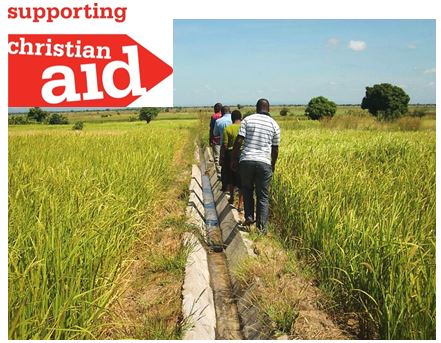
by Fern Shaw | Mar 30, 2017 | Charity, Christian Aid
The donation figures from AquAid to Christian Aid over the last two years were very encouraging, with £107,093 being donated in 2015 and £111,132 donated in 2016, meaning an additional £4,039 donated last year.

Christian Aid’s focus for the next three years will be on two specific projects in Malawi and Ethiopia. With AquAid’s trip to Ethiopia last year already documented, in this issue we highlight Christian Aid’s projects in Malawi.
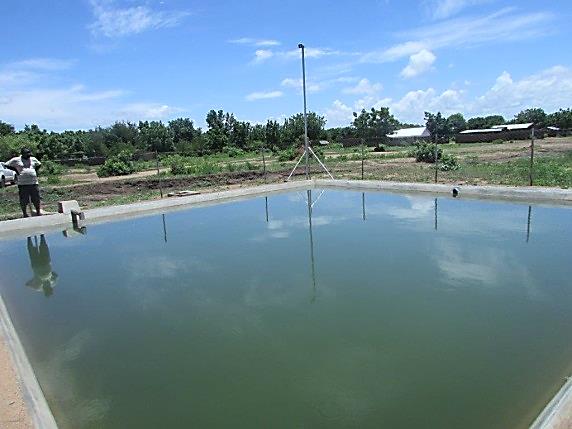 Malawi is among the world’s most densely populated and least developed countries. Around 55 per cent of people live on less than US$1 a day. Ninety percent of the Malawi population in rural areas are smallholder farmers.
Malawi is among the world’s most densely populated and least developed countries. Around 55 per cent of people live on less than US$1 a day. Ninety percent of the Malawi population in rural areas are smallholder farmers.
Small-scale farmers in the Salima District are facing a crisis. Despite being a lakeshore district, communities face a shortage of portable water and prevalence of water borne diseases is high. Farmers struggle to make a living in feeding their children and paying for basics such as soap and school uniforms.
Using donations from AquAid, Christian Aid are supporting farmers to enhance their resilience to the impacts of climate change by provision of water for irrigation and household use; implementing conservation agriculture technologies, diversifying crops to include those that are moisture stress tolerant.
Steps have been initiated to improve production at two state of the art irrigation schemes powered by solar energy.
With AquAid’s support, Christian Aid is continuing with supporting communities in Malawi so that more people can benefit from clean and safe drinking water.
Please contact AquAid should you like to find out more about how becoming an AquAid customer translates into ensuring sustainable water provision to those that need it most.
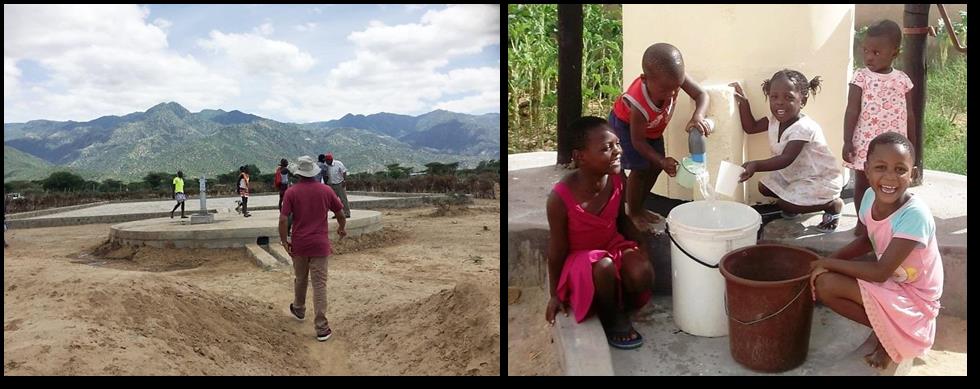
by Fern Shaw | Aug 31, 2016 | Christian Aid, Water
It’s a very important week in water this week, with the World Water Week summit taking place in Stockholm from 27 August to 02 September.
Participants from around the world will gather to convene events about water and development issues. It is also an opportunity for individuals from around the globe also present their findings at the scientific workshops.
The theme for this year’s summit is ‘Water for Sustainable Growth’.
Having recently returned from a visit to Ethiopia with Christian Aid, a charity that AquAid have partnered with since the company’s start in 1998; and having witnessed first-hand the vital need for water provision throughout the country, I can only concur that water provision to those that need it isn’t enough (although it’s a fantastic start!) – in order to make a difference in the long term – sustainable water provision is essential.
So, what can you do?
You can choose a water provider whose core belief is making a difference in other people’s lives. How so, you may ask? Well, simply put, AquAid have, from the start, donated to charities whose focus is on sustainable water provision. This means that for each bottle of water or water cooler purchase, a donation is made to these charities.
What do we do?
Of course, we’re a business and we operate on business principles. How we’re a little different is that a core business principle is to contribute to charities that make a difference. This is achieved through long standing relationships with charities such as Christian Aid and the AquAid founded Africa Trust.
Since our partnerships with these two charities began, AquAid have donated over £10 million to charity and more than 5 million people in more than 7 countries now have access to a better water source and a more sustainable ‘water’ future.
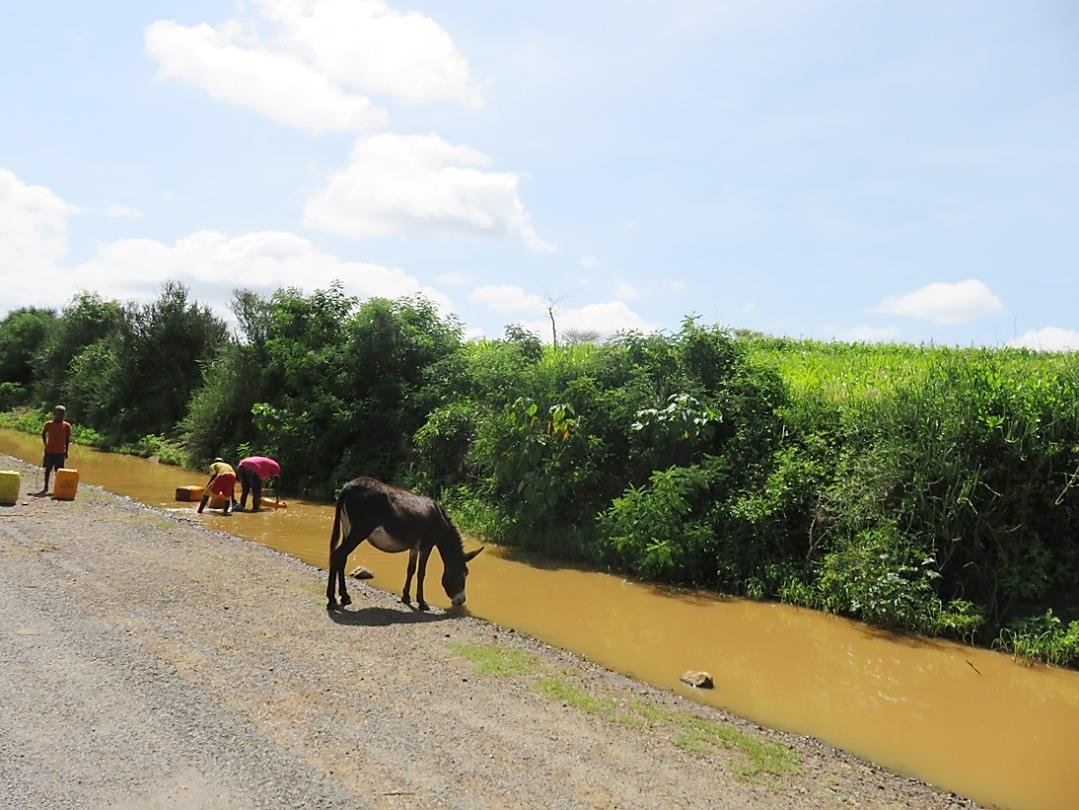
by Fern Shaw | May 31, 2016 | Charity, Christian Aid, water cooler, Water Coolers
It’s not often that I can say that I’m truly overwhelmed. I may drama queen a little about being overwhelmed but that’s not often the case.
What I did find truly overwhelming was my recent nine day visit to Ethiopia at the behest of AquAid and at the invitation of a charity which AquAid have for years supported; Christian Aid.
Having worked in water provision and in close conjunction with the charities that AquAid support for a few years now, this is a matter that has taken on a great significance to me, as well as, I’m sure, everyone at AquAid. I’ve experienced daily how important it is to balance the business side as well as maintaining and perpetuating Paul Searle’s (AquAid’s founder) holistic philosophy of giving back. On the trip, though, I experienced this philosophy first hand.
Ethiopia is a magnificent country, that’s the only way that I can describe it. The Ethiopians are among the kindest, most hospitable and polite people I’ve met in my travels; the country is vast, the scenery is awe inspiring and the industriousness of the people is truly something to witness.
After a briefing at the Christian Aid offices in Addis Ababa, we departed on the first leg of our journey to visit the first of four projects in the south of the country. As our amazing driver, Girma, who would put any F1 driver to shame, negotiated his way through an endless progression of pedestrians, other road users which also included herds of cattle; sheep and goats as well as donkey, mule and horse carts, I observed something interesting. Every mile or so there were people walking. Not a gentle lollygagging type of walk, but walking with determination. Most were carrying yellow containers. Many of these people were very young children, some who looked to be no older than seven or eight years old.
When we passed a puddle on the side of the road, a river, a stream, there were people collecting water. I have no idea how many miles these people walked every day, but I imagine it was a good few miles at least. They shared the puddles with all manner of others including animals. These puddles were open to the elements, unprotected and quite a few puddles alongside certain stretches of road had all the detritus from the road and its passing traffic landing in them.
- The magnitude of what I was witnessing struck me – here is a country that has water in abundance (Ethiopia has more vast lakes than you can shake a stick at), but a large majority of its inhabitants live and work hundreds of miles away from these large sources of water. They are dependent on the weather – their water source more often than not from the rainfall; and the country experiences dry months for eight out of the twelve months of the year.
- This is where charities such as Christian Aid come in and have been doing so in the country since 1998 when they set up an office in Addis Ababa. Christian Aid and AquAid have been working in partnership since 2001, bringing relief and sustainable water provision to those in need around the globe.
We witnessed five such projects during our trip which I will detail in further articles, but having being there, the importance of having water or indeed, having access to water, truly struck home. Here were thousands of people to whom the struggle for water, stuff of life, wasn’t a turn of a tap or a press of a button away. Here, having water meant a day to day survival, where if you wanted water, you strapped plastic containers to yourself and you started walking, for miles and miles, looking for the precious stuff. You may get ‘lucky’ and find a big enough water puddle from which you could fill your containers, often you would not.
What also occurred to me (during and post trip) is how invaluable it is to have companies such as AquAid and even more invaluable – our customers who support AquAid. Because I truly witnessed the results of what charity means. For every person from each community that we visited who had water to drink, water to cook with, water to water their livestock and their crops, this was a direct result of donations to charity. Life changing stuff.
If you’d like to find out more about how your water cooler and bottled water purchases can make a difference to people’s lives (and I mean this literally), please get in contact. We’d love to hear from you.
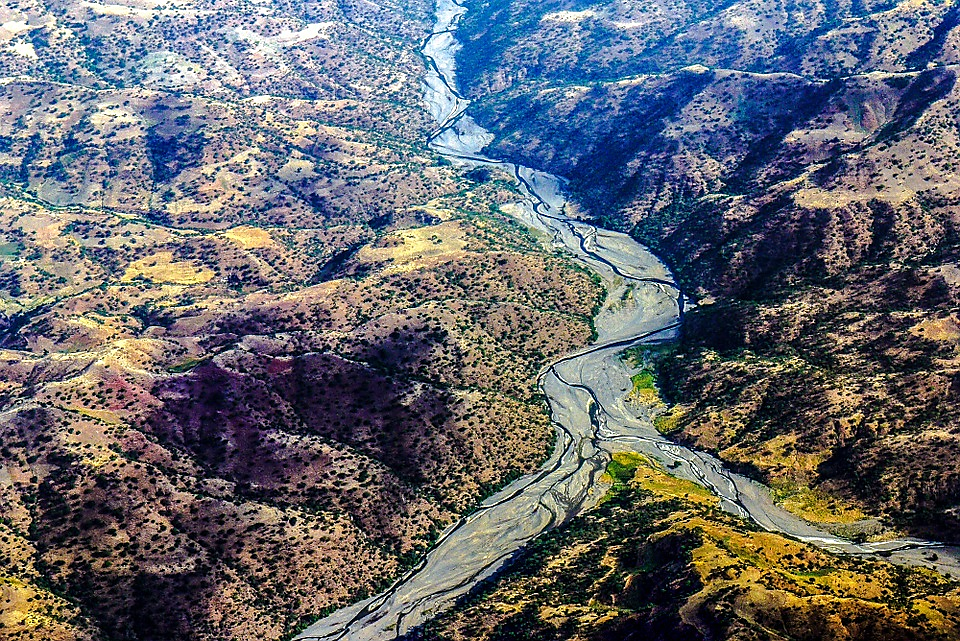
by Fern Shaw | May 4, 2016 | Charity, Christian Aid
Ethiopia is without a doubt one of the most fascinating countries on the African continent. It has an incredibly ancient and cultural history and is believed to be (by some) to be a cradle of civilisation and the birthplace of Christianity.
Addis Ababa is Ethiopia’s capital city. It means ‘white flower’ and, at 2 400 m above sea level, it is the 4th highest capital city in the world.
The Great Rift Valley cuts through Ethiopia from northeast to south of the country and is the only physical feature of Africa that it visible from space.
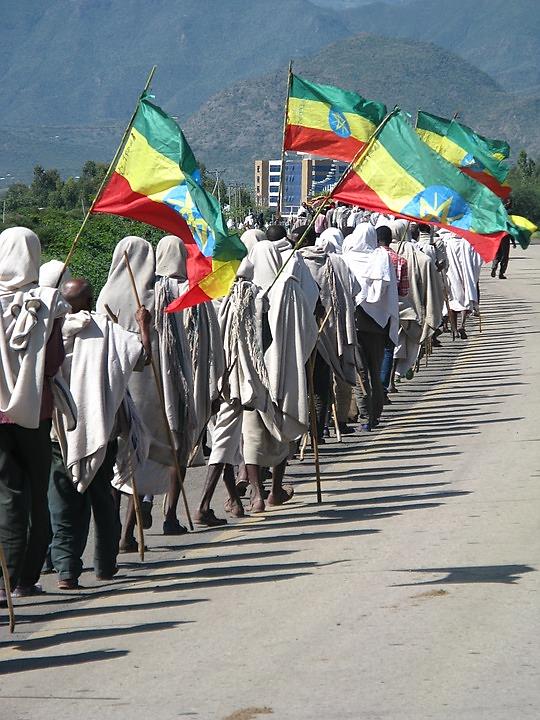 According to legend, the True Cross on which Jesus Christ was crucified was found by St. Helena – the mother of Constantine the Great, the Roman Emperor who converted to Christianity – in the 4th century. A relic of that cross was later given to Ethiopia’s kings for protecting Coptic Christians in their country. Meskel celebrates the arrival of the True Cross in Ethiopia and has been celebrated there for more than 1,600 years.
According to legend, the True Cross on which Jesus Christ was crucified was found by St. Helena – the mother of Constantine the Great, the Roman Emperor who converted to Christianity – in the 4th century. A relic of that cross was later given to Ethiopia’s kings for protecting Coptic Christians in their country. Meskel celebrates the arrival of the True Cross in Ethiopia and has been celebrated there for more than 1,600 years.
Ethiopia is considered the originator of honey wine, or t’ej, which the rest of the world knows as mead.
More than 70% of Africa’s mountains are found in Ethiopia. It is sometimes called ‘the roof of Africa.’
Ethiopia was the first African nation to join the League of Nations.
The Garima Gospels, the oldest illustrated Christian book, is in Ethiopia. It was written about A.D. 494 by the Abba Garima, a monk who arrived in Ethiopia from Constantinople (present-day Istanbul). According to legend, he wrote the book in one day.
Ethiopia is home to the Black Jews, known as the Falashas or Beta Israel (House of Israel). Various legends claim they are a lost tribe of Israel or descendants of King Solomon.
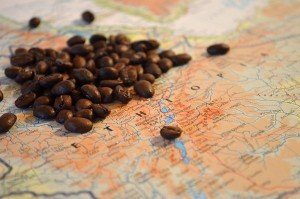 Coffee was first discovered by an Ethiopian goat herder named Kaldi in the Kaffa region, from which the word ‘coffee’ may derive, when he noticed his goats ‘dancing’ after eating the berries off the coffee plant. Coffee is the top agricultural export for 12 countries, with the livelihood of over 100 million people depending on its production, and it is the world’s second most valuable commodity after petroleum.
Coffee was first discovered by an Ethiopian goat herder named Kaldi in the Kaffa region, from which the word ‘coffee’ may derive, when he noticed his goats ‘dancing’ after eating the berries off the coffee plant. Coffee is the top agricultural export for 12 countries, with the livelihood of over 100 million people depending on its production, and it is the world’s second most valuable commodity after petroleum.
Emperors ruled Ethiopia until 1974 and all claim to be descendants of King Solomon of the Bible and Makeda (Ethiopian Queen of Sheba). Haile Selassie I was the last Ethiopian emperor.
Ethiopian emperor Haile Selassie I is considered the son of God among the followers of the Jamaican Rastafaria religion. In fact, the name ‘Rastafari’ originates from the emperor’s birthplace, Ras Tafari, which means ‘Prince Tafari’ in Amharic. Bob Marley was one well-known Rastafari. Although the Rastafari movement did evolve in Jamaica, it began in Ethiopia.
The Abyssinian cat breed, which originated in Ethiopia, ranks within the top ten most popular pedigreed cat breed in the U.K.
Lucy, a human fossil believed to have existed over 3 million years ago, was found in the Great Rift Valley in Ethiopia in 1974. She was named after the Beatles’ song “Lucy in the Sky with Diamonds”, which was playing on the radio at the time she was found. Even older remains were found in Hadar in 2001. Dated at more than 5 million years old, they are the earliest known ancestors of modern humans.
Christian Aid is an organisation that provides urgent, practical and effective assistance where need is great, tackling the effects of poverty as well as its root causes. The organisation has been providing assistance and relief in Ethiopia for decades and AquAid continue to be one of Christian Aid’s main corporate sponsors, especially with a view to water provision projects in Ethiopia and other countries in need.
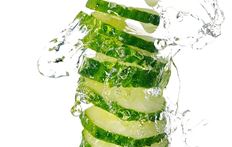
by Fern Shaw | Apr 26, 2016 | Charity, Christian Aid, Water
We should all know the direct correlation between drinking sufficient water and keeping healthy by now (OK, well I should, I’ve researched and written about it often enough – maybe you shouldn’t), but quite surprisingly in spite of a plethora of information from just about everywhere, it seems we still need to be told about this pretty basic principle.
- To be fair (all about fairness, me) in this tech age, I may just be more easily convinced if I had some clever water bottle that glowed at me until I drank from it or;
- What about a water bottle that apparently dings at you when it’s time to drink up!
- Then, getting even more tech spec-ee, what about all these apps that alert you to the fact that you haven’t had your daily water as yet. Yep, there really are a variety of ‘drink water’ apps available for smart phones and for those that like to add cucumber or similar to their water, there is a water bottle / spiral slicer (yep, really) that slices your cucumber directly into your bottles water.
These inventions and concepts (as some are still at the conceptual stage) are quite amazing, clever and resourceful.
For me though, not having a smart phone (oh woe is me) and I’m guessing I’m one of many millions that also don’t have a smart phone, I still believe that it’s kind of up to the individual (unless you have a forward thinking team at work who realise that hydrated employees are happier, healthier and make for a more productive team) to ensure that you drink your water.
What’s even more amazing is that if you choose your drinking water from AquAid, a portion of the proceeds of your water cooler purchase is automatically donated to water projects around the globe – these being to Christian Aid and The Africa Trust.
Now, that’s pretty amazing!
by Fern Shaw | Feb 4, 2016 | Charity, Christian Aid
As always, thanks to the commitment to top service and maintenance from everyone at AquAid and because of the provision of top quality products, 2015 was a very productive and successful year.
One of the most important aspects of the company experiencing a bumper year is that we continue to be able to support the charitable organisations that we have committed to for over a decade now. Donations in 2015 have proved remarkably successful in this regard.
Obviously, without our customers’ continued patronage, these successes and the contributions to the charities that AquAid supports wouldn’t be possible, so our sincere thanks to all of you, dear AquAid customer!
The Africa Trust
The total sum of donations to The Africa Trust from January through to December 2015 was £807,450.00. These donations in part translated into 612 Elephant Pumps being built throughout Africa, where a safe, constant water supply is absolutely crucial.
Christian Aid
The total sum of donations to Christian Aid in 2015 was £112,113.00. This amount meant that Christian Aid was able to continue with their live-saving work across the globe, with a focus on water-related projects using funds donated by AquAid.
The total sum of donations to both The Africa Trust and Christian Aid in 2015 is £919,585.00. This means an astonishing increase of £39,585.00 compared to the total donation of £880,000.00 in 2014.
We again would like to express our sincere thanks to all those at AquAid and to all our customers for their incredible support last year.
If you have any water cooler requirements, would like to become an AquAid customer and in so doing, support the life-saving sustainable work that AquAid continues to contribute to (at no extra cost to you), please feel free to contact us here – we’d be delighted to hear from you.


 Malawi is among the world’s most densely populated and least developed countries. Around 55 per cent of people live on less than US$1 a day. Ninety percent of the Malawi population in rural areas are smallholder farmers.
Malawi is among the world’s most densely populated and least developed countries. Around 55 per cent of people live on less than US$1 a day. Ninety percent of the Malawi population in rural areas are smallholder farmers.



 According to legend, the True Cross on which Jesus Christ was crucified was found by St. Helena – the mother of Constantine the Great, the Roman Emperor who converted to Christianity – in the 4th century. A relic of that cross was later given to Ethiopia’s kings for protecting Coptic Christians in their country. Meskel celebrates the arrival of the True Cross in Ethiopia and has been celebrated there for more than 1,600 years.
According to legend, the True Cross on which Jesus Christ was crucified was found by St. Helena – the mother of Constantine the Great, the Roman Emperor who converted to Christianity – in the 4th century. A relic of that cross was later given to Ethiopia’s kings for protecting Coptic Christians in their country. Meskel celebrates the arrival of the True Cross in Ethiopia and has been celebrated there for more than 1,600 years. Coffee
Coffee